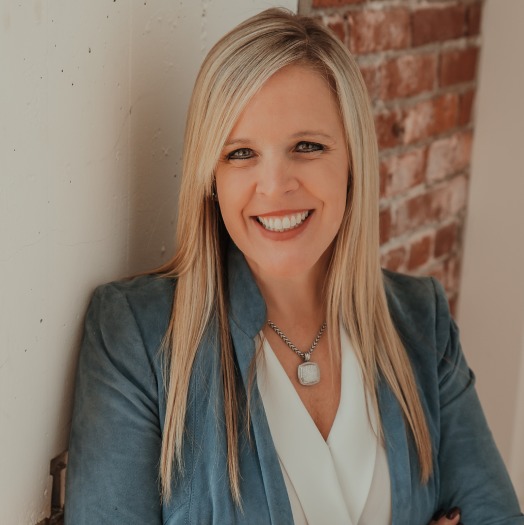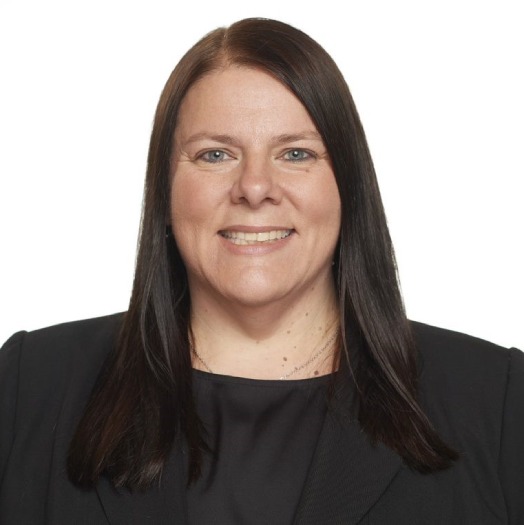











NG Healthcare Digital Summit
The COVID-19 pandemic disrupted healthcare and reinforced the need to improve physician and patient experiences, quality of care and financial outcomes.
Connect with leading Healthcare experts on business-critical challenges and disruptive technology and drive your industry forward collaboratively.

Julia Belle
Why Attend
New connections
Build new connections with likeminded senior leaders
Business trends
Stay current with emerging business trends
Key takeaways
Downloadable and actionable takeaways
New partnerships
Accelerate key projects through meaningful new partnerships
Insights
De-risk new projects by gaining a broad range of insights
New technologies
Understand the impact new technology can make












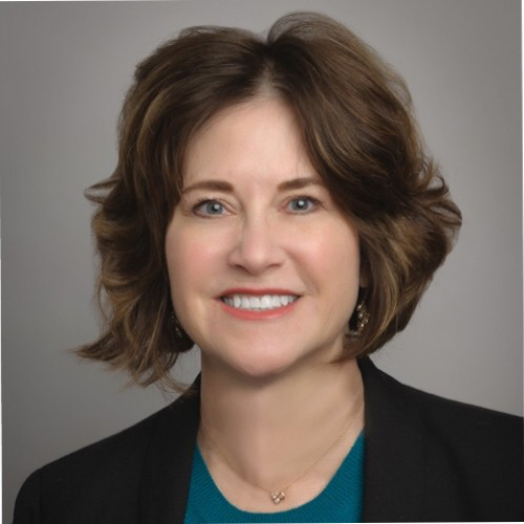

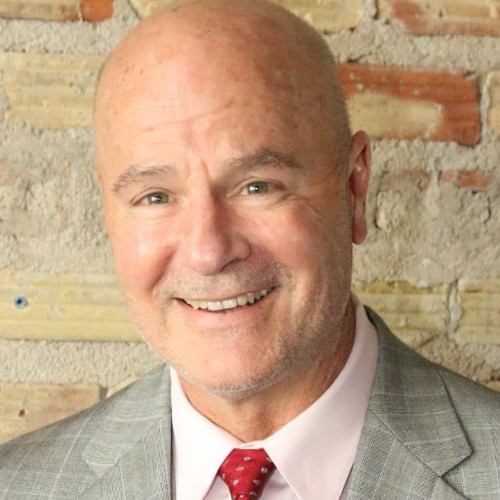




Trusted by
We host global organizations with the conversations that matter. That’s why we’re trusted by these top brands.
Event Agenda
09:00 - 09:15
Opening Remarks
Intro & Diamond Commentary
09:15 - 09:45
Keynote
09:45 - 10:25
Panel Discussion
The Shifting Model of Post-Acute Care: Out of the Hospital & Into the Home
10:25 - 10:35
Insight Break
Listening at Scale: A renewable source of insights to drive business outcomes
Join this session to discuss how strategic decision-making is being powered by tech innovation. This enables teams to listen at scale, and as a result, is changing how we understand our customer emotions and behaviors to drive business outcomes.
10:35 - 11:25
Roundtables
Track 1: Revolutionizing the Patient & Member Experience
As we progress through 2023, healthcare organizations are continuing to find ways in which to revive the patient & member experience. We know that each person is different — not only in terms of their medical history, but also their personality, motivations, and values — and those differences can be amplified when it comes to making decisions about their health. The future goal for healthcare organizations is to meet customers at the right time, in the right way, with the right messages, and to communicate in a way that brings them value. The silver bullet is to deliver exceptional online and offline experiences, putting the user experience at the heart of transformation. Healthcare companies must integrate customer experience into their overall strategy and put customers at the center of every decision they make in order to succeed.
Questions to answer in this Roundtable Include:
•One of the consequences of the general consumerization of healthcare has been a need to meet the same 24/7 customer service expectations as other industries. What are some ideas you have to meet these expectations?
•What avenues can be used between providers and payers to facilitate collaboration through better use of patient data?
•How might digital systems enable organizations to reach a wider patient base and improve access?
•How are you redesigning your care pathways to create a hybrid approach now that virtual care is an integral part of the patient experience?
•For patients/ members with no access to the internet, technology can be a barrier to care. What does a personalized experience look like for that population?
•How should payers and providers be working together to create a positive/ effective patient & member experience?
Track 2: Enabling Better Payer & Provider Collaboration
Greater payer-provider alignment is needed for the U.S. health care system to achieve high-quality, affordable care. One of the positive results of the pandemic has been increased collaboration among hospitals and health insurers around the country. But the value of collaboration isn’t limited to crises. It can be a mechanism for improving quality and reducing costs in normal times. Hospitals and health systems must foster transparent, collaborative relationships to enhance case management and care coordination, ultimately improving outcomes and lowering costs.
Interoperability is the key to success for provider organizations under value-based contracts. Access to timely, actionable data is essential for quality and process improvements, as well as demonstrating performance to payer organizations. Value-based payment doesn’t have to be a zero-sum game: Providers can achieve healthy margins while payers decrease risk and associated costs. The key to realizing value is for providers to partner closely with payers to develop models that support data sharing, high-quality care, and reduced waste.
Questions to answer in this roundtable include:
•How are you working with payers to manage your patient population and how has it changed because of the pandemic?
•How has the pandemic improved relationships between payers and providers?
•How can the sharing of data be used to better enable payer/provider collaboration?
•What are your thoughts on transparency and information exchange, as they relate to clinician relationships and the development of clinical pathways?
•What are some of the risks and concerns with collaboration? What are some of the hurdles to overcome?
•Are there any particular third party companies or products that have helped you with better collaboration or information sharing? Is investing in these products a priority?
•Should payers offer financial incentives to providers for better collaboration? How can payers help increase collaboration?
•How can payer/provider collaboration create success with the value- based care model?
Track 3: Utilizing Data to Enable Better Health Outcomes
AI and data analytics have featured largely in the healthcare industry’s line of defense against COVID-19. Researchers have leveraged these tools to do everything from tracking hospital capacity to identifying high-risk patients, and many believe that these technologies are critical to preparing for similar situations in the future. Data analytics also serve as an essential tool when trying to close gaps in care. By studying data, providers can determine what steps need to be taken to improve patient outcomes. If healthcare organizations can marshal the right technologies and approaches, the opportunities are enormous: better demand forecasting reducing waste and saving costs; powerful insights into patient needs and preferences to reconnect them with the healthcare system; and the ability to deliver predictive, personalized, preventative care.
This group will look at how we can take the next step to deliver on the promise of data, exploring questions including:
•What are the opportunities of using forecasting for providers and payers to better meet demand?
•How do we overcome technological and organizational hurdles needed to embed data and analytics?
•What are the opportunities for bringing patients back into the healthcare system who have withdrawn during the pandemic?
•How do we manage trust issues when working with such sensitive data?
•What are the opportunities for using data to deliver better individual care that's predictive, personalized, and preventative?
•As digital transformation continues to make healthcare more patient-centric, unlocking data will be crucial in informing growing areas of innovation and the shift towards a more value-based healthcare model. What has the role of data and analytics been for you as we shift to using more and more technology?
11:25 - 11:30
Short Break
11:30 - 12:10
Masterclass Breakouts
Sponsor:
12:10 - 12:40
Headline Keynote
09:00 - 09:15
Opening Remarks
09:15 - 09:45
Keynote
Ethics in Healthcare: The Role of an Ethicist at the Bedside and in the Boardroom
Dr. Merrill will review the critical roles that considerations of bioethics and business ethics play in the complex landscape of healthcare delivery. Topics will include:
1. Bedside ethicist consultations and their impact on provider, staff, family, and patient satisfaction, as well as on patient flow and cost of outpatient and inpatient care
2. The role of an ethicist and an Ethics committee in supporting
•Healthcare delivery system policy development
•Board development of morally cogent policies and strategy for hospitals, provider practices, and payers
09:40 - 10:20
Panel Discussion
Reimagining the Fundamentals of Patient & Member Experience
10:25 - 10:35
Insight Break
10:40 - 11:30
Roundtables
Track 1: Revolutionizing the Patient & Member Experience
As we progress through 2023, healthcare organizations are continuing to find ways in which to revive the patient & member experience. We know that each person is different — not only in terms of their medical history, but also their personality, motivations, and values — and those differences can be amplified when it comes to making decisions about their health. The future goal for healthcare organizations is to meet customers at the right time, in the right way, with the right messages, and to communicate in a way that brings them value. The silver bullet is to deliver exceptional online and offline experiences, putting the user experience at the heart of transformation. Healthcare companies must integrate customer experience into their overall strategy and put customers at the center of every decision they make in order to succeed.
Questions to answer in this Roundtable Include:
•One of the consequences of the general consumerization of healthcare has been a need to meet the same 24/7 customer service expectations as other industries. What are some ideas you have to meet these expectations?
•What avenues can be used between providers and payers to facilitate collaboration through better use of patient data?
•How might digital systems enable organizations to reach a wider patient base and improve access?
•How are you redesigning your care pathways to create a hybrid approach now that virtual care is an integral part of the patient experience?
•For patients/ members with no access to the internet, technology can be a barrier to care. What does a personalized experience look like for that population?
•How should payers and providers be working together to create a positive/ effective patient & member experience?
Track 2: Enabling Better Payer & Provider Collaboration
Greater payer-provider alignment is needed for the U.S. health care system to achieve high-quality, affordable care. One of the positive results of the pandemic has been increased collaboration among hospitals and health insurers around the country. But the value of collaboration isn’t limited to crises. It can be a mechanism for improving quality and reducing costs in normal times. Hospitals and health systems must foster transparent, collaborative relationships to enhance case management and care coordination, ultimately improving outcomes and lowering costs.
Interoperability is the key to success for provider organizations under value-based contracts. Access to timely, actionable data is essential for quality and process improvements, as well as demonstrating performance to payer organizations. Value-based payment doesn’t have to be a zero-sum game: Providers can achieve healthy margins while payers decrease risk and associated costs. The key to realizing value is for providers to partner closely with payers to develop models that support data sharing, high-quality care, and reduced waste.
Questions to answer in this roundtable include:
•How are you working with payers to manage your patient population and how has it changed because of the pandemic?
•How has the pandemic improved relationships between payers and providers?
•How can the sharing of data be used to better enable payer/provider collaboration?
•What are your thoughts on transparency and information exchange, as they relate to clinician relationships and the development of clinical pathways?
•What are some of the risks and concerns with collaboration? What are some of the hurdles to overcome?
•Are there any particular third party companies or products that have helped you with better collaboration or information sharing? Is investing in these products a priority?
•Should payers offer financial incentives to providers for better collaboration? How can payers help increase collaboration?
•How can payer/provider collaboration create success with the value- based care model?
Track 3: Utilizing Data to Enable Better Health Outcomes
AI and data analytics have featured largely in the healthcare industry’s line of defense against COVID-19. Researchers have leveraged these tools to do everything from tracking hospital capacity to identifying high-risk patients, and many believe that these technologies are critical to preparing for similar situations in the future. Data analytics also serve as an essential tool when trying to close gaps in care. By studying data, providers can determine what steps need to be taken to improve patient outcomes. If healthcare organizations can marshal the right technologies and approaches, the opportunities are enormous: better demand forecasting reducing waste and saving costs; powerful insights into patient needs and preferences to reconnect them with the healthcare system; and the ability to deliver predictive, personalized, preventative care.
This group will look at how we can take the next step to deliver on the promise of data, exploring questions including:
•What are the opportunities of using forecasting for providers and payers to better meet demand?
•How do we overcome technological and organizational hurdles needed to embed data and analytics?
•What are the opportunities for bringing patients back into the healthcare system who have withdrawn during the pandemic?
•How do we manage trust issues when working with such sensitive data?
•What are the opportunities for using data to deliver better individual care that's predictive, personalized, and preventative?
•As digital transformation continues to make healthcare more patient-centric, unlocking data will be crucial in informing growing areas of innovation and the shift towards a more value-based healthcare model. What has the role of data and analytics been for you as we shift to using more and more technology?
11:30 - 12:00
Innovation Exchange Keynote
12:00 - 12:33
Closing Prime Keynote
A Closer Look at AI’s Role in Value-Based Care
Computer-Assisted Physician Documentation (CAPD) technology offers an innovative solution, proactively identifying and addressing gaps in the patient record, all while streamlining the clinician workflow. Join Nuance CMIO Robert Budman, MD, MBA, as he shares his experience and the impact AI technology has on wellness and chronic disease management and identifying care gaps for value-based care.
Learning objectives:
•Discover the documentation challenges tied to risk-based arrangements for outpatient clinics
•Drive changes that capture important Hierarchical Condition Categories (HCCs) - medical conditions that have been identified as those that most predictably affect the health status and health care costs of any individual patient
•Learn how to leverage AI-enabled CAPD technology within an outpatient clinic to identify care gaps and appropriately documented - the more complex the patient, the more resources needed for patient care
09:00 - 09:15
Opening Remarks
09:15 - 09:45
Keynote
09:40 - 10:20
Panel Discussion
Death by Pilot: How to Drive Healthcare Innovation That Scales
10:25 - 10:35
Insight Break
10:40 - 11:30
Roundtable Leaders Panel
11:40 - 12:10
Innovation Exchange Keynote
12:11 - 12:41
Closing Keynote
An immersive
event experience
interactive features including:
Audience Interaction
Engage with a virtual live audience just as you would at a physical event and create meaningful conversations.
Interactive Live Polling
Keep engaged through interactive live polling and gamification tools.
Direct connections
Ask your questions face-to-face with the speakers via our leading stage technology.
Relationship building
Build stronger connections with leading executives that you will take with you through your career
Thought Leadership
Content and insight from industry experts when it matters most
Intelligent interaction
Interactive quizzes gamify your experience
Have a question…
There is no cost associated with attending a GDS Summit. In return, we ask that all senior executives in participation attend for the full duration to ensure that all attendees get maximum value and insight from the interactive roundtables, live Q&As and breakout networking sessions.
Our digital summit portfolio is designed to bring together senior decision makers from large global businesses and innovative disruptor brands to drive industry forward through addressing business critical challenges collaboratively.
If you’re keen to build new connections with likeminded leaders, de-risk your projects through new insight and establish new partnerships that can accelerate your projects then apply to attend today.
Complete our form below if you’re interested in attending the summit and you meet our application criteria. A member of the GDS team will then reach out to run you through the programme and event format and discuss your participation.
On stage: co-host a panel discussion with a group of likeminded senior executives or host a solo keynote presentation. Both slots include elements of interactive audience Q&A
Off stage: become a roundtable moderator, leading the discussion with the same cohort of executives for the duration of the summit around a specific topic you’ve agreed to focus on during the roundtable session.
We can tailor a partnership package to help meet your business objectives. This might include brand awareness, driving traffic to your site or quality editorial content via exclusive interviews and Q&As with our executive audience. Enquire today for more information.





































